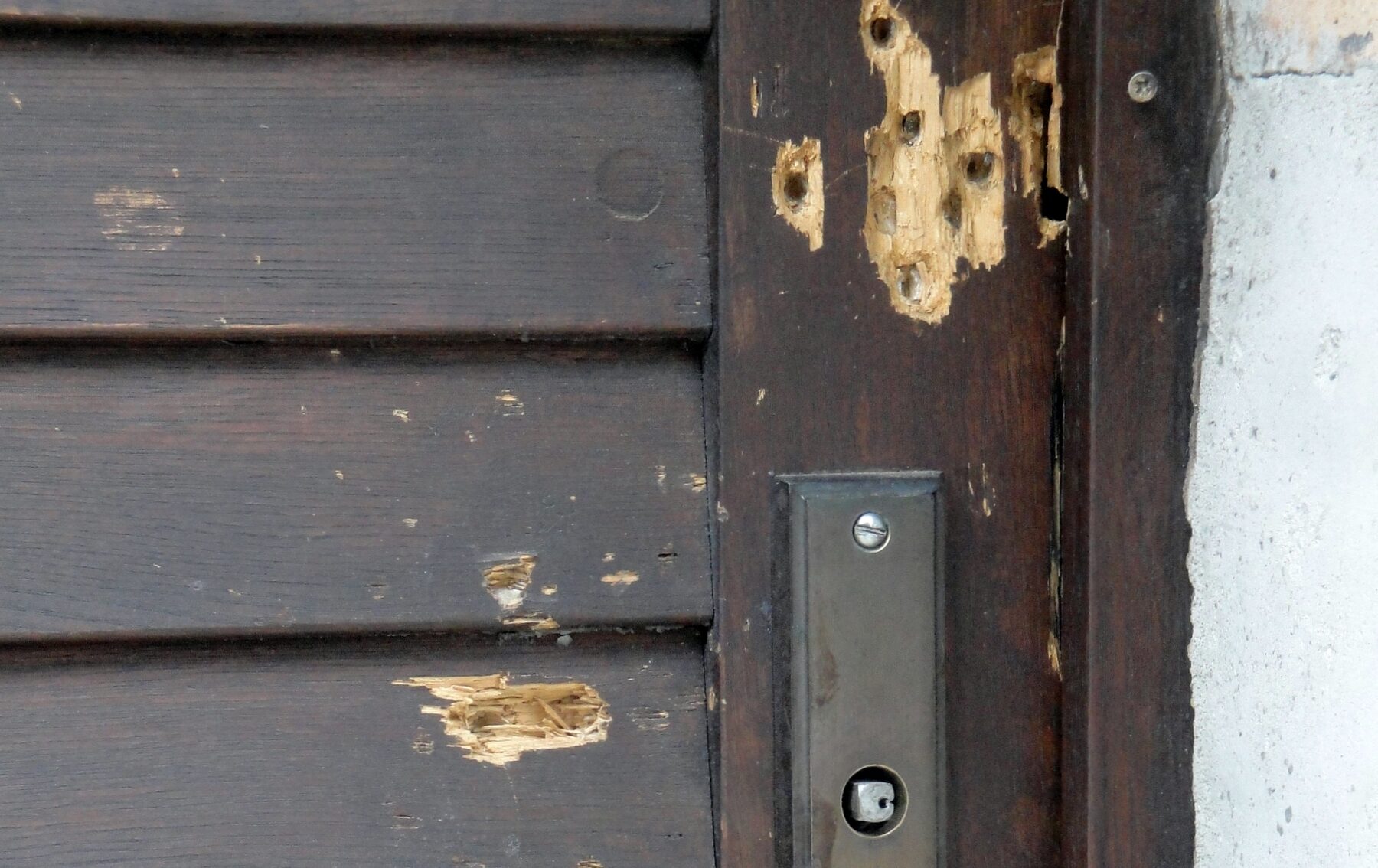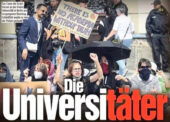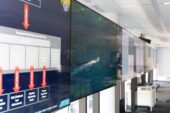Only after the attack in Christchurch did the EU Commission and the Council take violent right-wing extremism and terrorism more seriously. However, no progress has been made in the cross-border fight against the phenomenon. Some Member States are putting the brakes on political decisions and consider terrorist attacks only as “extremism”.
On 15 March 2019, the Australian-born right-wing terrorist Brenton Tarrant shot 51 people in cold blood and injured another 50 in Christchurch, New Zealand. The perpetrator is considered a “lone wolf” or “lone actor”, i.e. an individual who has radicalised himself in right-wing forums and social media on the internet. For many years, European police and secret services have monitored and prosecuted the phenomenon exclusively in the field of Islamist terrorism. Only after the momentous attack did cross-border right-wing networks and “lone actors” radicalised through their structures find their way onto the EU agenda.
There are well-organised right-wing extremist associations such as Blood and Honour, Combat 18, Hammerskins, Soldiers of Odin, the Nordic Resistance Movement or the Identitarians, which all operate throughout Europe and also have connections on other continents. Their activities were partly observed by the EU, but not perceived as a threat. The EU police agency Europol publishes the “Trend Report on Terrorism in Europe” (TESAT) every year. There, “right-wing terrorism” is still at the end of the document after “jihadist terrorism”, “ethno-nationalist and separatist terrorism” and “left-wing terrorism”, where Europol counts mainly arson attacks in the member states.
“Low, but not insignificant”
The imbalance in the assessment may be explained by the fact that individual Member States often do not regard right-wing attacks as “terrorism”, but rather as “extremism” or “hate crimes” under national law. This classification is then reflected in the TESAT report, which for 2018 shows only one (!) right-wing terrorist act, whereas 19 events are left-wing terrorist incidents. In 2019 Europol counts six right-wing and 26 left-wing terrorist attacks.
The intelligence services at EU level seem to have reacted similarly calmly to the right-wing threat. All national services in the Member States regularly report to the EU Intelligence Analysis Centre (INTCEN), which then sends analyses to the relevant bodies in Brussels. For the period up to September 2019, five months after the Christchurch attack, INTCEN, in line with Europol, assessed the threat from violent right-wing extremism as “low, but not insignificant, and growing”.
A different assessment was first made by Gilles de Kerchove, the EU Counter-Terrorism Coordinator, who responded to the right-wing threat with a discussion paper presented on 19 September 2019 and a background report for the Council Working Party on Terrorism. According to the papers, attacks in countries such as Norway, Germany, Italy, the United Kingdom, Canada and the USA had also shown “need to further strengthen the EU approach in tackling right-wing extremist violence”.
Repressive only online
Kerchove recommended more exchange of experience and an overview of the legal and political framework for prosecuting right-wing extremist activities in the Member States. National Criminal Police Offices are encouraged to feed more data into the “Dolphin” analysis project, in which Europol collects information on all forms of non-Islamic terrorism. Eurojust, the European Union Agency for Judicial Cooperation in Criminal Matters, is supposed to use its recently renewed “European judicial counter-terrorism register” to combat violent right-wing extremism, according to the proposal. The two agencies are to cooperate and “identify links of right-wing violent extremist and terrorist groups across the EU”. To this end, Europol should cooperate more closely with police forces in third countries, including the non-EU Western Balkans. The topic of “violent right-wing extremism” is also dealt with at EU-US meetings of high-level officials in the field of Justice and Home Affairs (JHA), most recently on 15.9.2020.
The Police Agency should, according to the proposals made by Kerchove, also use its relevant instruments to combat terrorist financing. For example, Europol is the central hub of the Terrorist Finance Tracking Programme (TFTP) and, in this capacity, forwards requests from Member States to US authorities for police investigations into financial transactions data via the European provider SWIFT. To combat money laundering and terrorist financing, Europol also acts as the node of the national Financial Intelligence Units (FIUs), who receive indications of suspicious transactions from banks and financial institutions.
The only repressive measure referred to by the Counter-Terrorism Co-ordinator was the extreme right-wing “online space”, which is to be regulated with existing instruments. For material which providers such as YouTube, Facebook or Microsoft do not take offline of their own accord, Europol operates a “EU Internet Referral Unit” (EU IRU). The department addresses requests for deletion to the companies, which are in most cases complied with. With the adoption of the planned regulation on “on preventing the dissemination of terrorist content online”, these requests for deletion will become mandatory, but both the old and last year’s newly elected Parliament are yet reluctant to comply. No sooner had the dead been counted after the attack in Christchurch than the EU Commission had instrumentalised the act to adopt the proposed regulation and urged the Parliament to abandon its legitimate reservations.
Four lines of action
Six months after the attack in Christchurch, on 12 September 2019, the EU Member States discussed the extreme right-wing violent and terrorist threats for the first time in the Council Working Party on Terrorism on the occasion of the Kerchove proposals. Two weeks later, the Standing Committee on Operational Cooperation on Internal Security (COSI) discussed a paper from the then Finnish Presidency in which delegates were asked to answer questions on the visibility of right-wing extremists in their countries. The focus was on activities with a cross-border dimension.
It was not until 8 October 2019 (one day before the anti-Semitic attack on the synagogue in the German city Halle) that the Interior Ministers at their Council meeting in Luxembourg held an orientation debate on “Right wing violent extremism and terrorism” and then instructed the relevant Council working groups, the COSI, the Commission and the agencies to implement four areas of action. These are taken from a list drawn up by the Finnish Presidency, which in turn is based on the Kerchove recommendations:
1. create a better situational overview of right-wing violent extremism and terrorism
2. continue to develop and share good practices on how to strengthen the prevention, detection and addressing of violent extremism and terrorism
3. create a better overview of right-wing extremism and terrorism
4. cooperate with key third countries
A further decision entrusts the Commission and the Council working groups with the implementation of the four areas. In addition to an overview of the legal and political framework in the Member States, the Commission is also to draw up a state of play on the different treatment of texts and symbols of groups and organisations of violent right-wing extremism and terrorism.
Attacks against refugees, politicians and leftists
In several reports since then, Europol had to point to increasing right-wing threats. On 25 October 2019, the Counter-Terrorism Centre at Europol (ECTC) presented the 7th biannual report on the terrorist threat situation. The document is classified, but in Germany by the investigative media cooperation of WDR, NDR and Süddeutsche Zeitung covered it. According to their report, the number of arrests in connection with right-wing terror in Europe has risen significantly from twelve in 2016 to 44 in 2018. However, according to Europol, the figures should be treated with caution, as Member States cannot agree on a uniform definition of right-wing extremism and right-wing terror. Right-wing extremist groups would also “increase the physical capabilities and weapons”, where martial arts events also played an important role. The groups tried to win experienced personnel from the military and security authorities for themselves. Violent attacks were mainly directed against refugees and asylum seekers, politicians and persons from the left spectrum as well as sexual minorities. Europol cites the “significant increase” of right-wing sentiment in Europe as one of the reasons for the rise in attacks.
In July of this year, the EU Counter-Terrorism Coordinator drew attention to the fact that right-wing extremists increasingly organised and radicalised themselves via gaming platforms. There it is possible to communicate in chats without accounts via encrypted connections. According to Kerchove, the still little monitored platform Steam is popular, where various groups glorify right-wing extremist, anti-Semitic, homophobic and other hateful content.
Not strong against right-wing terrorism
In their programme “Together. Make Europe strong again” (the English version translates this into “Together for Europe’s recovery”), the German government has defined the “fight against right-wing terrorism and violent right-wing extremism” as one of the priorities for the EU Presidency in the second half of this year. The programme is not be particularly concrete, however, but some of the measures already planned to extend police cooperation and surveillance are to be extended to right-wing threats. The German Federal Ministry of the Interior intends to support a study on “EU-wide networking on the Internet”.
The EU interior ministers did not want to hold a political debate on this topic until their December meeting. To date, also other EU bodies have not come much further than the toothless proposals made by the anti-terrorism coordinator last year in September. For example, the Commission has not managed to present the requested overview of the national political and legal framework conditions on violent right-wing extremism and right-wing terrorism. Nor has a common EU-wide definition of the phenomenon been found yet.
The reason for this lies in countries such as Hungary and Poland, but also Austria or, for a while, Italy, which are slowing down many initiatives against the right with reference to freedom of expression. Following the adoption of the four strands of action, the Polish government had made a unilateral declaration in the JHA Council of Ministers that Polish extremist organisations did not pose a threat to the internal security of the country and had no cross-border significance. The government resisted attempts to associate the right-wing conservative governments of Member States with right-wing extremism or radical groups.
Only one recommendation implemented yet
In fact, by the summer of this year, the EU had only implemented the recommendation to prevent the streaming of attacks in social media, as the perpetrators of the attacks in Christchurch and Halle had done. A year ago, the EU and the platform operators had agreed to set up an “EU Crisis Protocol”, which promises an immediate response from companies in the event of an attack – and which had been prepared anyway against Islamist motivated attacks.
The proposed extension of the Europol IRU to include Internet content on violent right-wing extremism and terrorism does not appear to have been done yet. The German Federal Criminal Police Office then intends to send a “cost-free Seconded National Expert”, who is not financed by the Europol budget, for “technical support”.
Empty of content, however, is the agreement of the EU Member States to encourage “greater involvement with the subject matter” in the strategic steering committee of the EU Member States at Europol, as explained by the German Ministry of Interior. And only in a few areas there are to be operational working meetings within the framework of the “Dolphin” analysis file, for example on right-wing concerts. According to Europol’s TESAT report they are considered the most important sources of funding for right-wing extremist activities.
Corona crisis seen as an opportunity for “race war”
Europol should continue to monitor right-wing extremism and terrorism and regularly present “threat assessments”. One of the open questions is how the COVID 19 pandemic will affect the phenomenon. In May, the EU Counter-Terrorism Coordinator described in a paper how right-wing extremists are functionalising the virus in individual EU Member States to criticise migration and spreading racist or anti-Semitic conspiracy stories about the origin of the pandemic. According to Kerchove, the fear and insecurity arising from such narratives could foster the emergence of new forms of violent activism or terrorism. Extreme right-wing groups and individuals would also have welcomed the crisis as an opportunity to bring about an impending “race war”.
The fight against violent right-wing extremism and terrorism is still in its beginning at EU level. With the attacks in Munich, Halle and Hanau, Germany is one of the countries most affected by right-wing terrorism.
The German government and its Interior Minister Horst Seehofer have therefore not used this year’s EU Presidency to place the fight against violent right-wing extremism and terrorism at the top of the agenda as promised in the programme “Making Europe strong again”. The structures of violent right-wing extremism and terrorism operating throughout the EU are likely to be strengthened once again as a result.
Image: Bullet holes in the entrance door of the synagogue in Halle (Saale), Germany (Reise Reise, Halle Synagoge Tür (01), extract, CC BY-SA 4.0).





Leave a Reply